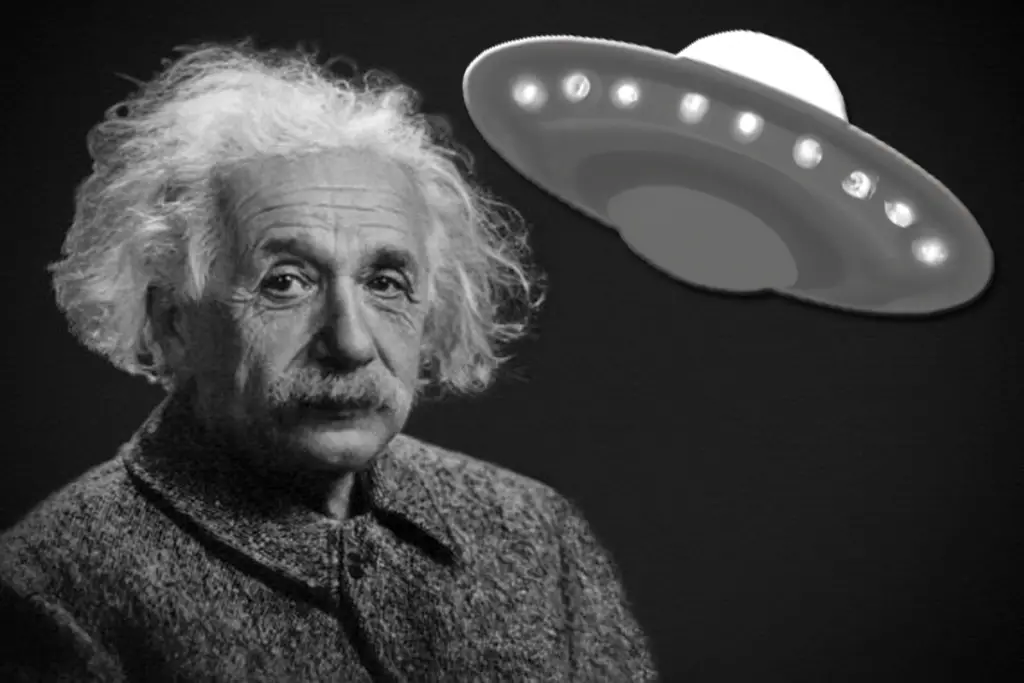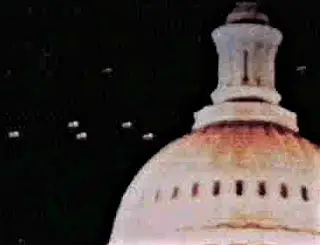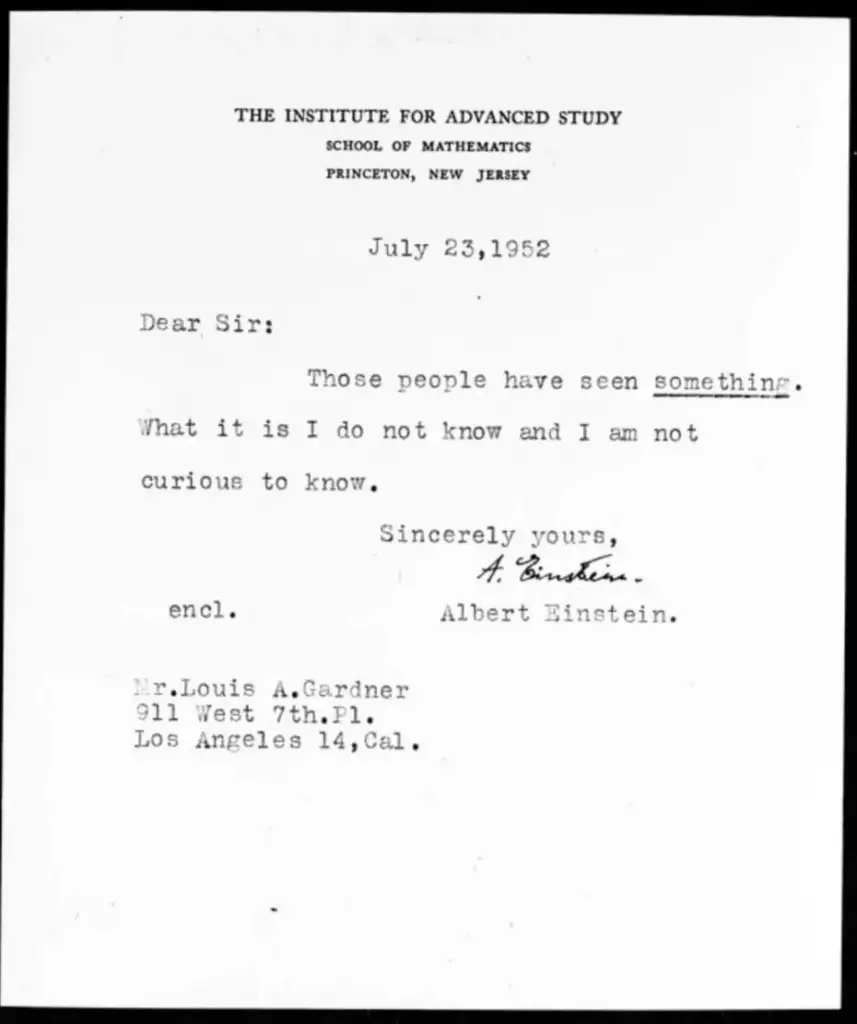
In July 1952, reports of “flying saucers” over Washington D.C. sparked widespread panic and intrigue. Pilots, radar operators, and citizens alike reported sightings of the mysterious objects, and President Harry Truman even called for an investigation. However, before any serious probe could take place, the Air Force swiftly held a press conference to quell the panic and blame the sightings on weather conditions.

One individual who was not content to accept this explanation was Reverend Louis A. Gardner, an evangelical minister who decided to reach out to none other than Albert Einstein to see if the renowned physicist had any insight into the strange occurrences. In response, Einstein sent a letter stating, “Those people have seen something. What it is I do not know and am not curious to know.”
In response, Einstein sent a letter stating:
“Those people have seen something. What it is I do not know and am not curious to know.”
This response may seem surprising coming from a man who once said, “The important thing is not to stop questioning. Curiosity has its own reason for existing” and who had also told his biographer just months prior that he was “passionately curious.” However, it is important to remember that Einstein was a scientist, and as such, he likely would have required concrete evidence and scientific explanation before becoming curious about a phenomenon. The lack of concrete information and the Air Force’s hasty attempts to explain the sightings away may have been enough for Einstein to remain skeptical and uninvested in the situation.



Leave a Reply